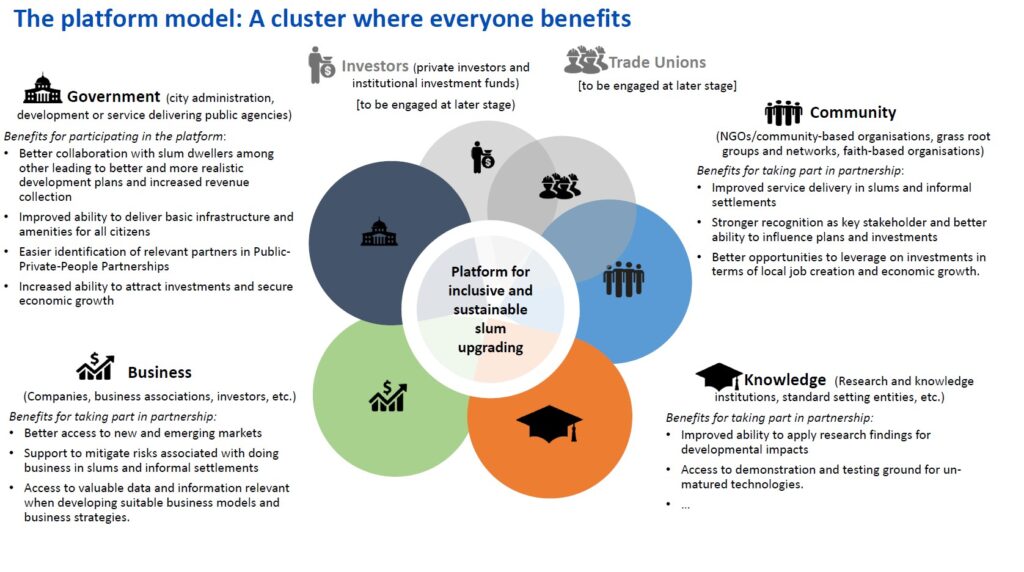INTRODUCTION:
Plan Internation and the Quercus Group are implemented a pilot project called “Facilitating cross sector partnerships to develop the market for inclusive slum upgrading and basic services”. The pilot project is funded by Danish Government Development Agency innovation grant. The pilot focused on the city of Kisumu, Kenya and more specifically the challenges related to solid waste and sanitation management in the slums and informal settlements.
The objective of the pilot was two-fold:
1. Establishing a multi-stakeholder platform for developing, testing and scaling sustainable business models for inclusive solid waste management and sanitation solutions targeting the slums and informal settlements of Kisumu.
2. Developing and testing an approach to establish and manage localized platforms/partnerships for inclusive slum upgrading involving all key stakeholders.
The pilot project will ran in two phases:
• Phase 1: Start-up (April-December 2018)
• Phase 2: Consolidation and scale-up (January- December 2019)

